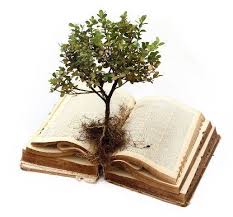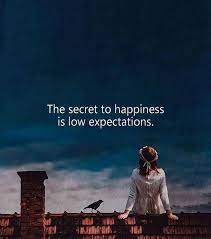Kashmiri Language
Dr Qayum Hamid Changal
 Few years ago I along with my parents visited one Kashmiri Pandit family in Jammu. It was a cold January and we were invited on lunch, personally I was very excited about the visit. It was my first visit to any Kashmiri Pandit family, and I knew it would be a great learning experience. Ready to explore and assimilate, as soon as we entered, we were welcomed with warmth. Tears in everybody’s eyes, we started discussing about our culture and fondness for each other. Trying to be a very patient listener, I was astonished to witness how efficaciously they bonded themselves to their roots.
Few years ago I along with my parents visited one Kashmiri Pandit family in Jammu. It was a cold January and we were invited on lunch, personally I was very excited about the visit. It was my first visit to any Kashmiri Pandit family, and I knew it would be a great learning experience. Ready to explore and assimilate, as soon as we entered, we were welcomed with warmth. Tears in everybody’s eyes, we started discussing about our culture and fondness for each other. Trying to be a very patient listener, I was astonished to witness how efficaciously they bonded themselves to their roots.
One of their daughters, settled in New York, was on vacations with them. She spoke fluent Kashmiri, and the body of words used in the language was mesmerising. More inspiring was yet to follow. Two beautiful daughters of her, one aged four and another aged five, born and brought up in America looked more Kashmiri than Americans. Both of them were wearing Pheran, and astonishingly they both uttered and pronounced beautifully in Kashmiri. It soothed my heart, and I felt proud of being Kashmiri. Dwelling in New York, their mother kept them much closer to their culture, language and tradition. It reminds me of the famous quote by Nelson Mandela, “If you talk to [someone] in a language [he or she] understands, that goes to [the person’s] head. If you talk to [somebody] in [his or her] language, that goes to [the] heart.” Pandit family proved Mandela right.
Our mother tongue is our recognition and distinction. It is an effective means of communication as well, where we can more easily express ourselves. There is a direct link developed between our heart, mind and tongue, moulds our emotions emphatically and breathes into us the air of belongingness and satisfaction. Talking about Kashmiri, it represents a special culture, the sequence of words that is musically satisfying, and it’s an energy that reverberates the soul into symphony. It’s the most impressive form of connection between our parents, culture, surroundings, history and identity.
It’s very important to teach our kids Kashmiri, for a child will identify himself with the language and culture he knows best. At the same time we must not forget that we live in a multi-dimensional and multi-cultural world, also teaching about other cultures isn’t a bad option at all. But, remember our mother tongue has a powerful impact in developing an individual’s personality and skills. Psychologists believe that conveying any information or assistance to a child in his or her first language picks up the developing phase and a child’s first comprehension of the world must be introduced in its mother language.
Unfortunately, the recent trend in Kashmir is very disturbing as well as disappointing. Parents feel shy in teaching their children Kashmiri, especially in the towns and Srinagar. This tendency is mostly spotted in the families where parents are literate, and they name it as “modernisation”. I’m the eyewitness to this mortification of our language and ignominy, the moment of shame for us. Parents are anxious, the stomach is in knots if their kids utter even a word in Kashmiri. But seldom do these “social butterfly” parents realise that mother tongue is very crucial for developing the academic excellence and extra skills in a child.
Dr. Jim Cummins is a professor at the Ontario Institute for Studies in Education of the University of Toronto where he works on language development and literacy development of learners of English as an additional language. He explains, “Children who come to school with a strong foundation in their mother tongue develop stronger literacy abilities in the language used at school.” It provides a very strong base for learning another language too. Those children who speak their mother tongue or first language comprehensively have greater chances of learning two or more languages extensively and in-depth. But, it’s very lamentable to know that most of the parents are thinking completely opposite to it.
I would like to share an incident. Once I visited one family in Kashmir, I was there for Eid wishes. One of their kids came running into the room and uttered something in Kashmiri. To this, his mother got up and shouted, “Bite your tongue, bite your tongue!” I was shocked, his mother reacted as if he used any obscene language. And, very proudly that lady pronounced, “Aasi czenaaz emis English hazchnaavan.Kashir hyazche buthe paanai.” (We are teaching him English. Kashmiri! he will learn himself.” I couldn’t control and replied back, “Khuda karinov reham.” (God Bless you people). It was more a taunt, a remark made to wake them up.
It’s painful and shameful at the same time seeing our beautiful language facing the torture at our own hands. Instead of turning blind eye, we must encourage our kids to speak in Kashmiri. Parents should teach their kids to love and respect Kashmiri, find different ways to motivate them to speak this melodious language. It’s important that we speak our second language outside, but once at home Kashmiri language should be our priority. Provide a reward system and make learning Kashmiri competitive among children, and discuss interesting topics in our mother language. Learning other languages should not be at the cost of Kashmiri.
Lastly, I would like to request Adbee Markaz Kamraz, the organisation active for preservation and promotion of Kashmiri language and culture to start workshops and symposiums at an extensive range and level for our budding children. More and more school kids should get involved in it and top Kashmiri scholars should be invited to teach our kids the history and identity of our land and language. We are incomplete without Kashmiri, theoretically as well as practically.
The author can be mailed at qhchangal@gmail.com





